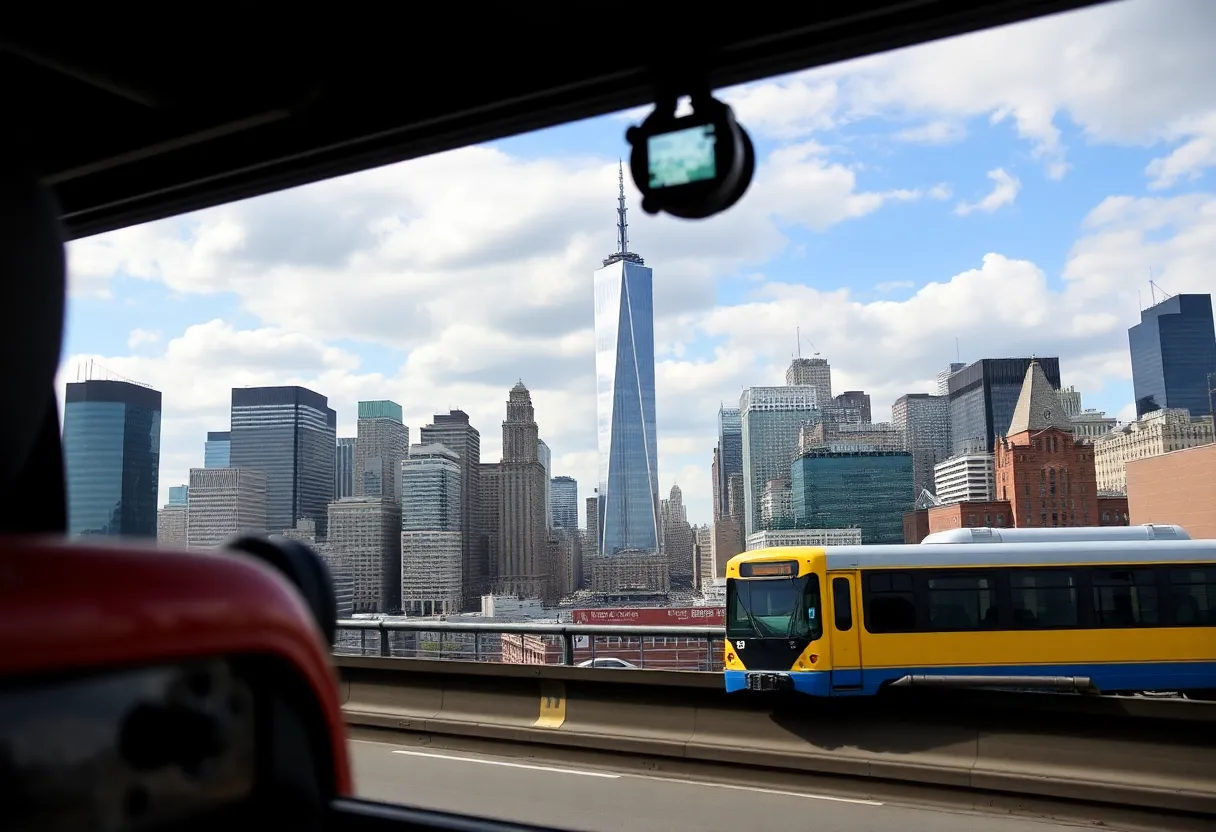News Summary
New York Governor Kathy Hochul announced a payroll tax increase to fund the MTA’s $68 billion infrastructure plan. The hike primarily affects large businesses, raising the tax rate for companies with payrolls over $10 million in NYC from 0.6% to 0.895%. While the decision aims to address a $35 billion revenue shortfall, business leaders express concerns about its impact on economic growth and job opportunities. Although some smaller businesses will see a tax reduction, a $3 billion gap in funding remains. MTA officials are yet to clarify their strategy for this deficit.
New York – New York Governor Kathy Hochul has announced a significant payroll tax hike aimed at generating funding for the Metropolitan Transportation Authority’s (MTA) $68 billion capital plan. The tax increase, which is part of a newly negotiated state budget deal with Albany Democrats, will predominantly affect large businesses operating in the state.
Under the new plan, the payroll tax rate for companies in New York City with payrolls exceeding $10 million will rise from 0.6% to 0.895%. Businesses located in other counties, including Long Island, Westchester, Dutchess, Orange, Putnam, and Rockland, will see an increase from 0.34% to 0.635%. This hike is expected to impact approximately 5,000 to 10,000 companies across New York.
The decision to implement this payroll tax increase comes as lawmakers attempt to address a significant $35 billion revenue shortfall in the MTA’s five-year capital plan, which is aimed at modernizing and upgrading the state’s transit infrastructure.
Business leaders have expressed deep concern over this tax increase. Prominent businessman John Catsimatidis has warned that such a move may push larger companies to relocate out of New York, leading to reduced investment and fewer job opportunities. He has also raised doubts about the MTA’s capability to manage the new funds effectively, citing issues with past management.
Former Senator Al D’Amato echoed these concerns, labeling the payroll tax hike as potentially disastrous for the state’s business landscape, and has pointed to mismanagement at the MTA over the years as a factor contributing to current challenges. Congressman Mike Lawler criticized the proposal as an attempt to bail out a poorly managed MTA, emphasizing a rising crime concern within the transit system as an obstacle to its effective operation.
Nassau County Executive Bruce Blakeman warned that the tax could impede economic growth and present a heavy burden on local businesses. While many business leaders are firmly against the payroll tax hike, there are factions that support it, including the Partnership for the City of New York, which highlights potential relief for smaller businesses and strives for a fair funding approach.
The state budget arrangement not only restructures payroll mobility taxes for larger firms but also reduces the tax rate for smaller companies, specifically those with payrolls under $1.75 million, by 50%. Despite these concessions, the overall funding generated through the payroll tax will only cover a majority of the MTA’s funding needs, leaving a projected $3 billion gap that the MTA will need to navigate.
As of now, MTA officials have yet to clarify how they plan to address the anticipated deficit. In light of these concerns, Senate Majority Leader Andrea Stewart-Cousins has indicated that some adjustments to the MTA’s capital plan might be required.
Despite some uncertainty regarding potential funding from the federal government, MTA leaders remain hopeful about securing necessary financial support for transportation projects in New York. The payroll tax increase is projected to generate nearly $1.4 billion annually, which will aid in financing essential transit-related initiatives, including upgrades to stations and enhancements in safety protocols.
As New York State moves forward with this controversial payroll tax hike, it underscores the ongoing tensions between the need for infrastructure investment and the impact of tax policies on businesses across the state.
Deeper Dive: News & Info About This Topic
- lohud: NY Budget Deal and MTA Funding
- Wikipedia: Metropolitan Transportation Authority
- NY Post: NYC Businesses Concerned Over Tax Hike
- Google Search: New York State Budget 2025
- NY Times: MTA Budget News
- Encyclopedia Britannica: Tax
- Crain’s New York: MTA Funding from State Budget
- Google News: MTA News








